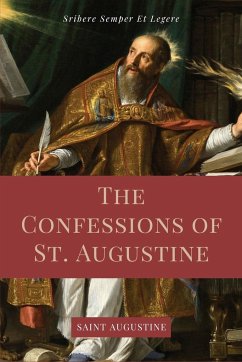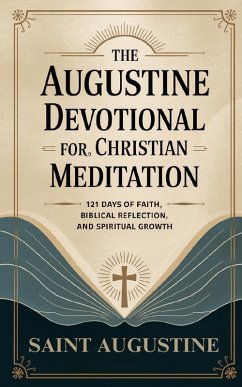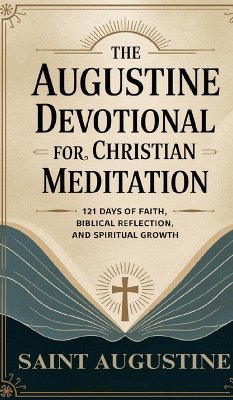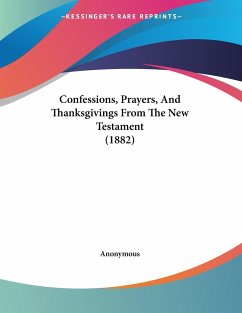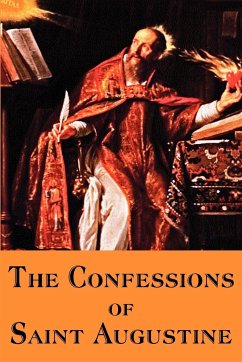
The Confessions of Saint Augustine
Versandkostenfrei!
Versandfertig in 1-2 Wochen
14,99 €
inkl. MwSt.

PAYBACK Punkte
7 °P sammeln!
St. Augustine of Hippo lived a life of sin until his conversion to Christianity at the age of 32. Twelve years later he gave a personal account of his search for truth in The Confessions of Saint Augustine. Augustine is one of the most important figures in the development of Western Christianity. In his early years he was heavily influenced by Manichaeism and afterwards by the Neo-Platonism of Plotinus, but after his conversion and baptism in 387, he developed his own approach to philosophy and theology accommodating a variety of methods and different perspectives. He believed that the grace o...
St. Augustine of Hippo lived a life of sin until his conversion to Christianity at the age of 32. Twelve years later he gave a personal account of his search for truth in The Confessions of Saint Augustine. Augustine is one of the most important figures in the development of Western Christianity. In his early years he was heavily influenced by Manichaeism and afterwards by the Neo-Platonism of Plotinus, but after his conversion and baptism in 387, he developed his own approach to philosophy and theology accommodating a variety of methods and different perspectives. He believed that the grace of Christ was indispensable to human freedom and framed the concepts of original sin and just war. When the Roman Empire in the West was starting to disintegrate, Augustine developed the concept of the Church as a spiritual City of God distinct from the material Earthly City. Augustine was educated in North Africa and resisted his mother's pleas to become Christian. Living as a pagan intellectual, he took a concubine, with whom he had a son, Adeodatus, and became a Manichean. Later he converted to Catholicism & became a bishop. In the Catholic Church and the Anglican Communion, he is a saint and pre-eminent Doctor of the Church, and the patron of the Augustinian religious order. Many Protestants, especially Calvinists, consider him to be one of the theological fathers of Reformation.





